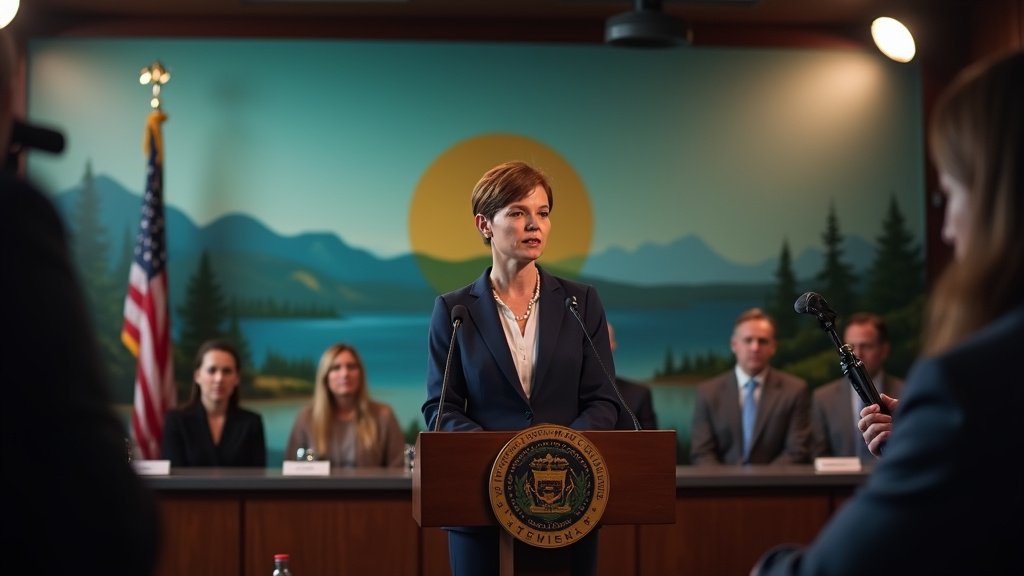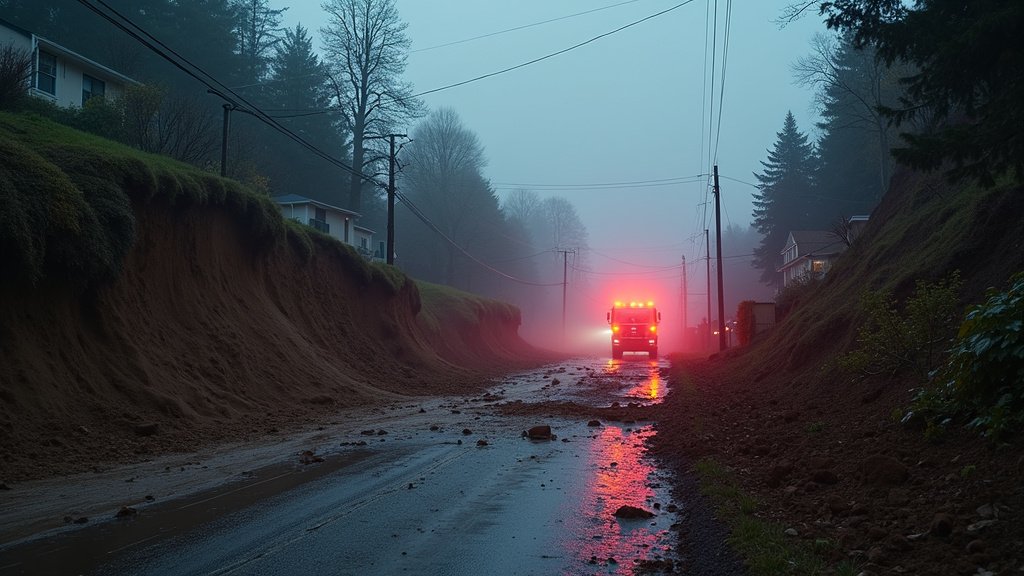Kotek Proposes Gas Tax Hike to Avert ODOT Layoffs, Faces Republican Opposition
Oregon Governor Tina Kotek has proposed a 6-cent gas tax increase and higher fees in an attempt to prevent layoffs within the Oregon Department of Transportation (ODOT), setting the stage for a potentially contentious special legislative session later this month. The move comes as the state grapples with a budget shortfall impacting essential transportation services. The Governor’s proposal, however, has already met with resistance from Republicans, who are advocating for alternative solutions.
The Proposed Solution and Its Rationale
Governor Kotek’s initiative seeks to bolster ODOT’s financial stability by increasing revenue streams. The core of the proposal involves a 6-cent-per-gallon increase in the state’s gas tax. Alongside this, the bill includes provisions for higher fees related to transportation services, though the specific details of these fees remain to be fully disclosed. The core motivation behind this action is to avert potential layoffs at ODOT, an agency responsible for maintaining and improving Oregon’s vast network of roads, bridges, and other transportation infrastructure. Kotek has consistently emphasized that the primary goal is to ensure the continuation of essential services that have been negatively affected by budget constraints. The administration’s concern is that without additional funding, ODOT’s capacity to deliver critical projects and maintain existing infrastructure will be significantly hampered.
Kotek’s decision to call for a special legislative session starting August 29th underscores the urgency of the situation. The timing reflects the administration’s concern about the deteriorating financial position of ODOT and the potential consequences for Oregon’s transportation network. The Governor has clearly signaled her intent to quickly address the funding shortfall to avoid long-term damage to the state’s infrastructure. The special session is a clear indication of the administration’s resolve to find a solution and a recognition of the gravity of the situation.
Context: The Failed Transportation Package
The current predicament is rooted in the failure of the Legislature to pass a comprehensive $12 billion transportation package earlier this year. This package was intended to provide a long-term funding solution for Oregon’s transportation needs, including new projects and maintenance of existing infrastructure. Its failure has left a significant void in the state’s transportation budget, necessitating immediate action to address the resulting financial challenges. Kotek has made it clear that her current proposal is a stopgap measure designed to meet immediate budgetary requirements, as opposed to funding extensive new projects. The emphasis is on stabilizing ODOT’s budget and reinstating services that have stalled due to the lack of adequate financial resources, preserving the existing transportation network, rather than undertaking major expansions.
The inability to secure the passage of the larger transportation package highlights the difficulties in reaching consensus on transportation funding, especially in the current political climate. This failure has had a ripple effect, leading to the current crisis and prompting the Governor to propose the gas tax increase. The outcome of the special session will, therefore, determine whether the state can effectively mitigate the damage caused by the failed package and ensure the stability of its transportation system.
Republican Opposition and Alternative Proposals
Republicans have already voiced their opposition to Governor Kotek’s proposed gas tax increase, setting the stage for a potential showdown during the special legislative session. Their primary argument revolves around the belief that existing revenue sources can be utilized to protect ODOT jobs without the need to burden Oregonians with a higher tax. The specific alternative revenue sources or strategies that Republicans would advocate for are not clearly detailed in the provided information, but it is clear that they have differing views on the appropriate path forward. The opposition from Republicans suggests that the special session will involve intense negotiations and potentially significant compromises before a solution can be reached.
The debate between the Governor and Republican lawmakers is likely to focus on competing priorities and differing views on fiscal responsibility. The Governor’s proposal to increase the gas tax is based on the immediate need to secure ODOT’s budget and prevent layoffs, while Republicans seem to prioritize a less tax-intensive approach. This conflict underscores the complexities of state-level budgeting and the challenges of finding common ground on crucial issues like transportation funding. The outcome of the special session will have significant implications for the state’s transportation infrastructure and the services provided by ODOT.
The Road Ahead
The special legislative session, starting on August 29th, will be a critical period for Oregon’s transportation funding. The outcome of the session will determine the fate of ODOT’s workforce and the future of the state’s transportation infrastructure. The negotiations between Governor Kotek and Republican lawmakers are expected to be intense, and the need for compromise will be paramount. The state’s ability to effectively fund its transportation needs will be tested during this critical time.
As the special session approaches, the public will be closely watching the developments. The resolution of this issue will set a precedent for future transportation funding decisions and have a significant impact on the state’s ability to maintain and improve its transportation system for years to come. The stakes are high, and the outcome of the session will likely be felt throughout Oregon.
Ultimately, the success of the special session will depend on the ability of the Governor and the Legislature to reach a consensus that balances the need for fiscal responsibility with the importance of maintaining essential public services. The challenge will be to find a solution that protects jobs, stabilizes the budget, and ensures the long-term health of Oregon’s transportation infrastructure. The public will be looking for a responsible and sustainable solution that serves the best interests of the state.




